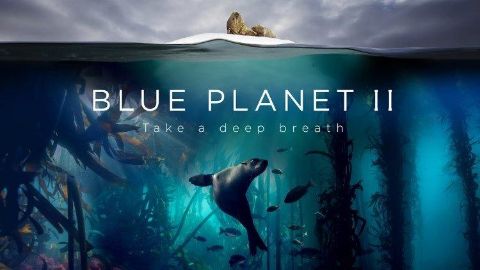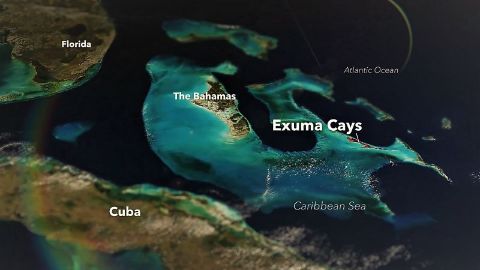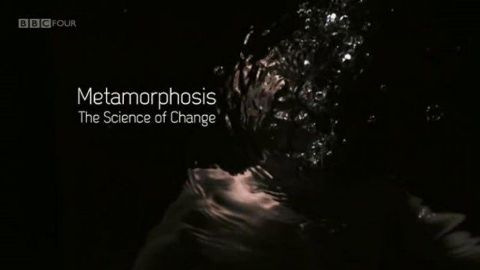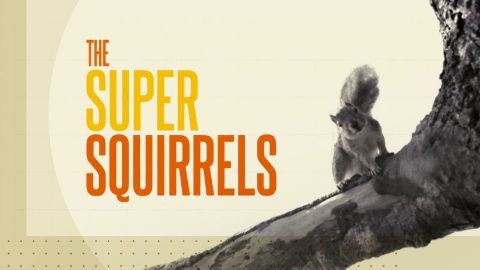You might also like
In this episode of Animal Super Senses, we get in touch with the feelings of wild animals. Just like humans animals rely heavily on their sense of touch, every day in every way. There may be a fine line between pleasure and pain, but not knowing the difference between the two can be absolutely fatal
S1E3 • Animal Super Senses • 2020 • Nature
Supermarkets are stocked with fruit year round in a global permanent summertime, but despite its accessibility, have we lost the diversity that makes it so special? The second episode of The Fruit Hunters will look at what happens when we abandon the Garden of Eden for an industrialized monoculture. In lush jungles of Borneo, Bala Tingang, an elder of one of the last hunter-gatherer tribes, lives of the wild fruits that are the key to his tribe's survival. And yet, all around the world, natural diversity is being replaced with monocultures, plantations of only one variety, bred for long shelf life and transportability rather than their taste or health properties. Not only is this lost of diversity impoverishing our taste buds, but it has catastrophic implications for our food security. In the vast uniform banana fields of Honduras, Juan Aguilar, a banana scientist, frantically tries to breed a banana resistant to a deadly fungus.
S52E12 • The Nature of Things • 2013 • Nature
The deep is perhaps the most hostile environment on earth, at least to us - a world of crushing pressure, brutal cold and utter darkness. We have barely begun to explore it, and yet it is the largest living space on the planet. Scientists already think that there is more life in the deep than anywhere else on earth. This episode takes us on an epic journey into the unknown, a realm that feels almost like science fiction. We discover alien worlds, bizarre creatures and extraordinary new behaviours never seen before. We encounter savage hordes of Humboldt squid hunting lanternfish in the depths and coral gardens flourishing in absolute darkness, with more species of coral to be found in the deep than on shallow tropical reefs.. Narrated by David Attenborough,
S1E2 • Blue Planet II • 2017 • Nature
In the 1950s, Howard Hughes eyed purchasing the precious Exuma Cays--that is, until the Bahamian government intervened to protect the untouched gems. Set sail with the scientists, tour guides, and guards who have carried on that legacy to protect reefs, patrol waters, and propagate coral.
S1E5 • Ocean Parks • 2015 • Nature
Metamorphosis seems like the ultimate evolutionary magic trick - the amazing transformation of one creature into a totally different being: one life, two bodies. From Ovid to Kafka to X-Men, tales of metamorphosis richly permeate human culture. The myth of transformation is so common that it seems almost pre-programmed into our imagination. But is the scientific fact of metamorphosis just as strange as fiction or... even stranger? Filmmaker David Malone explores the science behind metamorphosis. How does it happen and why? And might it even, in some way, happen to us?
2013 • Nature
The squirrel family is one of the most widespread on earth, so what is the secret to their success? There are squirrels that can glide through the air, outwit rattlesnakes and survive the coldest temperatures of any mammal. We uncover the extraordinary abilities of these cheeky characters, putting their problem solving to the test on a specially designed assault course. We team up with some of the world's top squirrel scientists who are making groundbreaking discoveries - from the fox squirrel who can remember the location of 9,000 nuts to the grey squirrel whose tree-top leaps are the basis of new designs in robotics. We also see the world through the eyes of an orphan red squirrel called Billy, as he grows up and develops all the skills he will need to be released back to the wild. It is time to meet the animal family we should never underestimate - the super squirrels.
Natural World • 2018 • Nature





